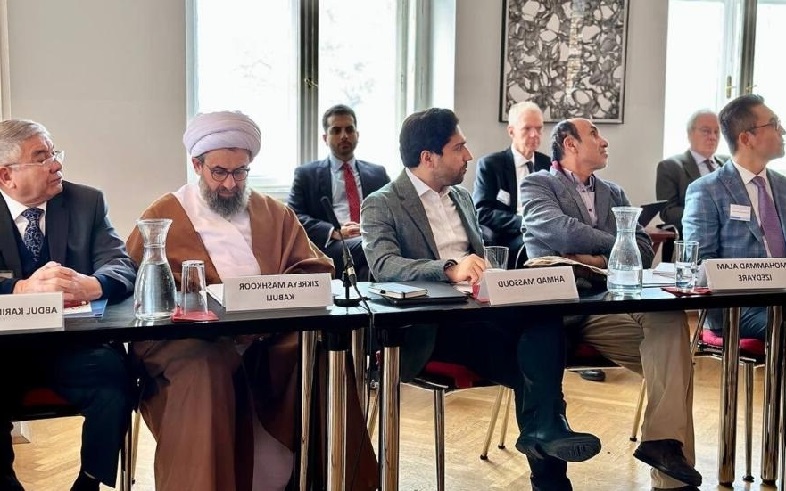The third meeting in Vienna, which was held recently with the presence of more than 50 officials of the former deposed government, political figures opposed to the caretaker government and foreign diplomats, has created rumors and speculations about the future of Afghanistan’s political situation.
Unlike the previous meetings held by the political groups opposed to the current government in Dushanbe, Moscow, etc., and ended without any tangible results, the Vienna meeting, apparently, reduced the gaps and disagreements among these groups and made them closer to each other.
Wolfgang Petridge, head of the Austrian Institute of “International Affairs Studies”, which organized the three-day meeting, told media that the third meeting in Vienna was “achieved” and more “useful and constructive” for Afghanistan than before.
The most important point that was officially announced as the outcome of this meeting is the claim of reaching a “road map for creating a democratic Afghanistan” that deserves discussion and reflection.
On the other hand, Ahmad Massoud’s statement about trying to consider “armed resistance” as sacred and emphasizing the continuation of activities against the current government is also an important point that cannot be easily ignored. Also, Mr. Massoud said that armed resistance has become mandatory, because according to them, the Taliban does not accept to get engaged in any kind of political negotiations. According to him, if the Taliban, whom they call disreputable faces, agree to holding elections, there will be no more armed war in Afghanistan and the people of Afghanistan will choose who the disreputable faces are and who the living figures are.
The picture obtained by putting together the statements of the participants of this meeting cannot be described as positive and clear, because the positions of political groups and officials of the previous government who are currently abroad and the increase of solidarity and integration between them provides the basis for the formation of a powerful political and possibly military group; that indicates the beginning of a long-term civil war.
Regardless of the outcome of the war and its implications for the future of politics and governance in Afghanistan, the experience of the past several decades clearly shows that war with any goal, without a doubt, will leave extensive and irreparable casualties and destruction. The continuous war and violence in the last two decades destroyed all infrastructures and prevented formation of a stable and powerful government and deprived the people of Afghanistan of a great opportunity.
Therefore, the most important point that all parties involved in the political crisis dominating Afghanistan should understand is to look for a solution whose first goal is to prevent another civil war to start.
The political and military group lining up against each other and thinking of eliminating each other militarily, should know that if the national interests and the bright future of Afghanistan are valuable to them, they should focus on national interests, away from war and armed conflict. They should come together and work on a common mechanism to form an inclusive government with the fair participation of all ethnic groups and political groups involved in Afghanistan’s politics.
It is clear that any threats, ignoring and confronting the policy of exclusion and monopoly by any group will undoubtedly make the situation worse and worse than the past and will lead the always wounded and displaced nation of Afghanistan to destruction at a faster rate.
It is not difficult to reach an agreement, if everyone ignores the personal interests other than the national interests and lay hands on each other.











Read More
Even Iran’s Senior Team Couldn’t Overpower Afghanistan – The Fear Was Evident
The Impact of U.S. Aid Cuts to Afghanistan
The Damages of Widespread Migration of Afghans to Foreign Countries